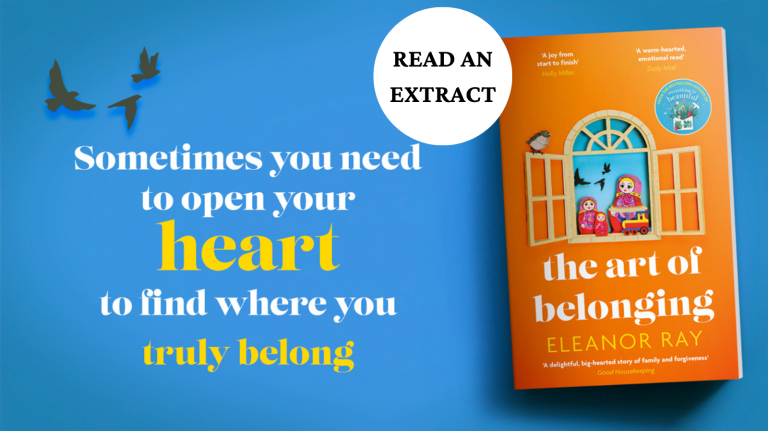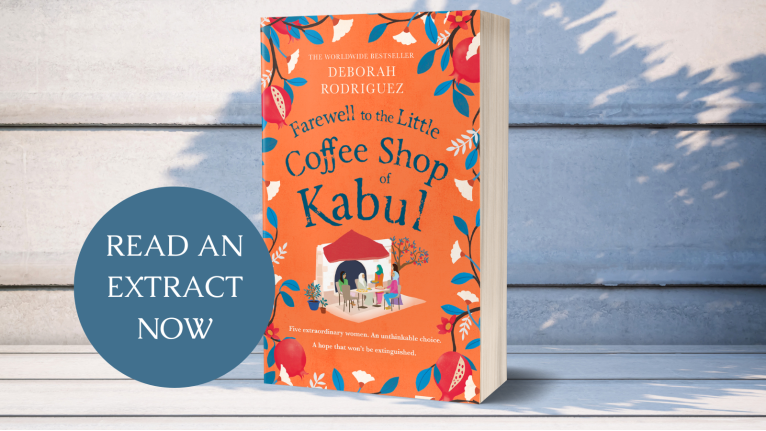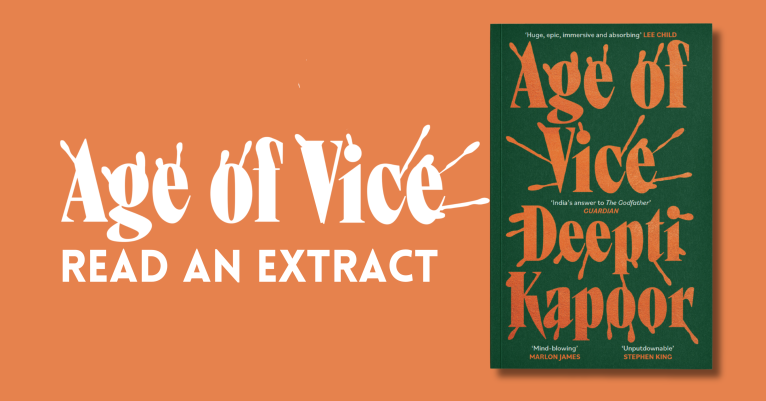Read an extract from Queen Charlotte by Julia Quinn and Shonda Rhimes

Dearest Gentle Reader,
This is the story of Queen Charlotte from Bridgerton.
It is not a history lesson.
It is fiction inspired by fact.
All liberties taken by the authors are quite intentional.
Enjoy.
***
Dearest Gentle Reader,
This coldest time of year has become that much colder with the sad news of the death of the Princess Royal. The granddaughter of our dear
King George III and Queen Charlotte died in childbirth along with her baby.
And while our hearts grieve for the loss of the Princess Royal, our heads grieve more for the future of the monarchy itself. For the Crown
now has a crisis on its hands. A crisis one can only imagine that Queen Charlotte must find galling after ruling over the matchmaking efforts of
the ton and the marriage mart with such an iron fist.
This Author and all of England can only hope Queen Charlotte finally turns her matchmaking energies onto her own family. After all, Her Majesty has thirteen children, and now not a royal heir from any of them. At least not a legitimate one.
It causes one to wonder: Is the Queen’s knowledge of how to make a good marriage nothing but talk?
Lady Whistledown’s Society Papers, 10 November 1817
Fifty-Six Years Earlier . . .
CHARLOTTE
Essex, England
The London Road
***
8 September 1761
Like all members of the German aristocracy, Princess Sophia Charlotte of Mecklenburg-Strelitz was in possession of a great many names. Sophia for her maternal grandmother, Sophia Albertine of Erbach-Erbach, a countess by birth and a duchess by marriage. Charlotte for her father, Charles Louis Frederick of Mecklenburg-Strelitz, who was born a second son and had died before he could assume the position of head of the family. Then there were the many and sundry double-barreled lands and properties that made up her heritage. Mecklenburg-Strelitz
and Erbach-Erbach, of course, but also Saxe-Hildburghausen, Schwarzburg-Sondershausen, and, if one wanted to go back far enough, Waldeck-Eisenberg.
She enjoyed all of her names, and she was proud of every last one, but the one she liked best was Lottie.
Lottie. It was the simplest of the bunch, but that wasn’t why she liked it. Her tastes rarely ran to the simple, after all. She liked her wigs tall and her dresses grand and she was quite certain no one in her household appreciated the complexities of music or art as keenly as she did.
She was not a simple creature.
She was not.
But she liked being called Lottie. She liked it because hardly anyone ever used it. You had to know her to call her Lottie.
You had to know, for example, that in spring her favorite dessert was raspberry-apricot torte and in winter it was apple strudel, but the truth was she had a taste for fruit, and for sweets, and any sweet made of fruit was her absolute favorite.
People who called her Lottie also knew that when she was a young girl she’d loved to swim in the lake by her home (when it was warm enough, which it rarely was). They also knew that when her mother had banned the practice (stating that Charlotte was too old for such frivolity), Charlotte had not spoken to her for three weeks. Peace was reestablished only after Charlotte had written a surprisingly thorough legal document outlining the rights and responsibilities of all involved parties. Her mother was not immediately persuaded by Charlotte’s arguments, but her older brother Adolphus had intervened. Charlotte had made a good case, he’d said. She’d shown logic and intelligence, and surely that should be rewarded.
Adolphus was the one who’d coined the pet name Lottie. And that was the true reason it was her favorite name. It had been bestowed upon
her by her favorite brother.
Pardon, her former favorite brother.
“You give the appearance of a statue,” Adolphus said, smiling as if she had not spent the last three weeks begging him not to marry her off
to a stranger.
Charlotte wanted to ignore him. She’d have liked nothing better than to never utter a word in his direction for the remainder of both of their
lives, but even she recognized the futility of such stubbornness. And besides, they were in a carriage in the southeast of England, and they
had a long ride both ahead and behind them.
She was bored and furious, never a good combination.
“Statues are works of art,” she said icily. “Art is beautiful.”
This made her brother smile, damn his eyes. “Art can be beautiful to gaze upon,” he said with some amusement. “You, on the other hand, are
ridiculous to the eye.”
“Is there a point?” Charlotte bit off.
He shrugged. “You have not moved an inch in six hours.”
Oh. Oh. He should not have gone there. Charlotte leveled her dark eyes on his with a ferocity that ought to have terrified him. “I am wearing Lyonnaise silk. Encrusted with Indian sapphires. With an overlay of two-hundred-year-old lace.”
“And you look beautiful,” he said. He reached out to pat her knee, then hastily withdrew his hand when he caught her expression.
Murderous.
“Apparently too much movement could cause the sapphires to shred the lace.” Charlotte growled. She literally growled. “Do you want me to
shred the lace? Do you?”
She did not wait for him to answer. They both knew he was not meant
to. “If that were not enough,” she continued, “the gown sits atop a bespoke underpinning made of whalebone.”
“Whalebone?”
“Yes. Whalebone, Brother. The bones of whales. Whales died so I could look like this.”
At that, Adolphus laughed outright. “Lottie—”
“Don’t,” Charlotte warned him. “Don’t you dare call me Lottie as if you care.”
“Come, Liebchen, you know I care.”
“Do I? Because it does not feel as if you care. It feels as if I have been trussed up like a prized sow and placed upon an altar as sacrifice.”
“Charlotte—”
She bared her teeth. “Shall you put an apple in my mouth?”
“Charlotte, stop. You were chosen by a king. This is a great honor.”
“That,” Charlotte spat. “That is why I am angry. The lies. You will not stop lying.”
She could not stand it, these endless lies. This was no honor. She wasn’t sure what it was, but certainly not an honor.
King George III of Great Britain and Ireland had appeared out of nowhere (or rather, his people had; he had not deigned to make an
appearance) and inexplicably decided that she, Sophia Charlotte of Mecklenburg-Strelitz, should be his next queen.
Mecklenburg-Strelitz. They had traveled all the way to Mecklenburg-Strelitz. Charlotte loved her home, with its placid lakes and verdant
lawns, but she was well aware that Mecklenburg-Strelitz was considered one of the least important states in all the Holy Roman Empire.
To say nothing of the distance. The King’s advisors would have had to sail past dozens of duchies and principalities—with
dozens of duchesses and princesses—before reaching Mecklenburg-Strelitz.
“I do not lie to you, Charlotte,” Adolphus said. “It is a fact. You were chosen.”
If Charlotte could have moved in her whalebone corset, she would have twisted to face him more squarely. But she could not, so she was
forced to settle for a glacial stare. “And how difficult was it to be chosen?” she demanded. “What do they need? Nothing special. Someone
who can make lots of babies. Someone who can read. Someone with all the social graces. Someone with a royal bloodline. That is all they required.”
“That is not nothing, Liebchen.”
“It is not a great honor. And you could have told them to choose someone else. Someone stupid enough to want it.”
“They did not want someone stupid. They wanted you.”
Good God, he could not possibly be so dense. “Adolphus, think,” she implored. “Why me? He could have anyone. Anyone. And yet they came
hunting all the way across the continent for me. There must be a reason for that.”
“Because you are special.”
“Special?” She gaped at his naiveté. No, not that. He was not naïve he was merely trying to placate her, as if she were some calf-witted
child, too blind or stupid to recognize the web of treachery that had been spun around her. “I am a stranger to them,” she said. “They are
strangers to us. You cannot think me this ignorant. There is a reason they wanted me, a stranger. And it cannot be a good reason. I know it
cannot be a good reason because you have not looked me in the eye since you told me.”
It took a moment for Adolphus to speak. When he did, his words were useless. “This is a good thing, Lottie. You shall be happy.”
She stared at him, at this man she thought she knew better than anyone. He was her brother, the head of her house since the death of their
father nine years earlier. He had sworn to protect her. He had told her she was good and worthy, and she had believed him.
She should have known better. He was a man, and like all men, he saw women as pawns to be shuffled around Europe without a thought to
their happiness.
“You know nothing,” she said in a low voice.
He said nothing.
“You proclaim that I will be happy as if you could possibly know that. As if your mere words will make it so. Did you ever once ask me
what I want? No, you did not.”
Adolphus expelled an irritated puff of air. She was trying his patience, this was easy to see. But Charlotte did not care, and her fury was
making her reckless.
“Turn the carriage around,” she announced. “I am not doing this.”
Adolphus’s face grew hard. “I signed the betrothal contract. You are doing this.”
“No.”
“Yes.”
“Brother.” She gave him an obnoxiously pleasant smile. “Turn this carriage around or I will bounce. Do you wish to know what will happen
if I bounce?”
“You shall tell me, I’m sure.”
“This corset of mine, made of the finest and most expensive whalebone, is rather delicate. And also, it is very, very sharp. And of course,
I am in the height of fashion, so this corset is quite snug.” Charlotte snapped a finger against her midsection to make a point, but the joke
was on her. She’d lost all sensation in her rib cage, and she might as well have been tapping a wall.
“Shall we loosen it?” Adolphus suggested.
“No, we shall not loosen it,” she hissed. “I must arrive on display, which means I must stay strapped into this monstrous thing. And thus
if I give the appearance of a statue, ridiculous to your eye, it is because I cannot move. No, I dare not move. My gown is so stylish that if
I move too much, I might be sliced and stabbed to death by my undergarments.”
Adolphus blinked.
“How joyful it is to be a lady,” she muttered.
“You are upset.”
She wanted to kill him.
“Charlotte—”
“It is a viable option,” she said. “Moving. I’ve considered it. Choosing to be killed by my undergarments. There must be an irony to it, although I confess I do not yet see it. Humor, yes. Irony . . . I’m not sure.”
“Charlotte, I mean it, stop.”
But she could not. Her mind was on fire. Her fury was righteous and she was scared, and with every mile she was hurtling toward a future she did not understand. She knew what was happening, but she did not know why, and it made her feel stupid and small.
“We have, what, an hour to go?” she railed on. “I believe if I am diligent with my movements I could most certainly bleed to death before we reach London.”
Adolphus appeared to be suppressing a groan. “Like I said, you are upset. Emotional. I understand—”
“Do you understand? Truly? This, I would love to hear. Because I am not upset. Nor am I emotional. I am angry. And I cannot breathe. And
both are thanks to you, Brother.”
He crossed his arms.
“I shall do it,” she warned. “I shall bounce, and I will impale myself on this ridiculous corset and bleed to death.”
“Charlotte!”
At that, she finally shut her mouth. Adolphus rarely took that tone with her. In fact, she was not sure he ever had.
Before her eyes, her genial brother disappeared, replaced by the stern and powerful Duke of Mecklenburg-Strelitz.
It was disconcerting. Infuriating. And it made the little girl who still resided deep in her heart want to cry.
“I know I should have taken a firmer hand with you when Mama and Papa died,” he said. “I allowed you to read too much, and I indulged your every whim and frivolity. So I take full responsibility for the fact that you are now exceedingly headstrong and mistakenly think you can make decisions. You cannot. I am in charge. This is happening.”
“I do not see why you could not just—”
“Because they are the British Empire and we are a tiny province in Germany!” he roared.
Charlotte shrank into herself. Just a little bit.
“We had no choice,” he hissed. “I had no choice. You want a reason? Fine. I have none. There is no good reason. In fact, the reason might be
terrible. I know that no one who looks like you or me has ever married one of these people. Ever. But I cannot question! Because I cannot make
an enemy of the most powerful nation on earth. It is done.” He leaned forward, vibrating with rage and impatience and maybe even resignation.
“So shut up, do your duty to our country, and be happy!”
Charlotte flinched. Because finally, Adolphus wasn’t lying. His skin was brown. Her skin was brown. Brown like chocolate, like warm, rich
wood. She did not have to set eyes upon King George III of Great Britain and Ireland to know that his was not.
So why? Why was he doing this? She knew what the pale-skinned Europeans said about people like her. Why would he “pollute” his bloodline
with a girl of Moorish ancestry? Her tree led to Africa, and it did not take many generations to get there.
Why did he want her?
What was he hiding?
“Liebchen,” Adolphus said. He sighed and his eyes softened. Once again, he was just her older brother. “I am sorry. But there are worse
fates than marrying the King of England.”
Charlotte swallowed and looked out the window at the English countryside rolling by. It was green and bursting with life. Fields and forests, small villages with their quaint churches and high streets. She supposed it did not look so different from her homeland, although she had not
spied a single lake.
Was it so much to wish for a lake?
“Will I ever return to Schloss Mirow?” she asked quietly.
Her brother’s eyes grew wistful, maybe even a little sad. “Probably not,” he admitted. “You will not wish to. In a year, we will be too rustic
for your tastes.”
Charlotte had the oddest sensation that if she were anywhere else, if she were anyone else, she might cry. Yesterday, her tears would have
flowed. Hot and angry, with all the passion of her youth.
But now she was to be Queen. She did not cry. Whatever lay inside a person, creating tears, forming sobs—it had been switched off.
“Sit back,” she said. She tugged her hands free from his and set them firmly in her lap. “You are endangering my gown. I need to look perfect
when I arrive, do I not?”
Her palace awaited.
Queen Charlotte: Before the Bridgertons came the love story that changed the ton…
by Julia Quinn
by Shonda Rhimes
From No. 1 New York Times bestselling author Julia Quinn and television pioneer Shonda Rhimes comes a powerful and romantic novel of Bridgerton's Queen Charlotte and King George III's great love story and how it sparked a societal shift, inspired by the original series Queen Charlotte: A Bridgerton Story, created by Shondaland for Netflix.
'We are one crown. His weight is mine, and mine is his . . .'
In 1761, on a sunny day in September, a King and Queen met for the very first time. They were married within hours. Born a German Princess, Charlotte of Mecklenburg-Strelitz was beautiful, headstrong, and fiercely intelligent . . . not precisely the attributes the British Court had been seeking in a spouse for the young King George III. But her fire and independence were exactly what she needed, because George had secrets . . . secrets with the potential to shake the very foundations of the monarchy.
Thrust into her new role as a royal, Charlotte must learn to navigate the intricate politics of the court . . . all the while guarding her heart, because she is falling in love with the King, even as he pushes her away. Above all she must learn to rule, and to understand that she has been given the power to remake society. She must fight - for herself, for her husband, and for all her new subjects who look to her for guidance and grace. For she will never be just Charlotte again. She must instead fulfil her destiny . . . as Queen.
...................
Hardback copies will feature a reversible book jacket with a bonus cover on the other side.
...................
Readers have fallen head over heels for Queen Charlotte!
'A great story about how love overcomes all. Incredibly touching to read'
'A beautiful story of not just love, but strength and character. This novel was just as good as the show'
'To truly understand the series, you have to read this book. It's even better reading it'
'George and Charlotte will make you laugh, cry, give you hope, and break your heart'







